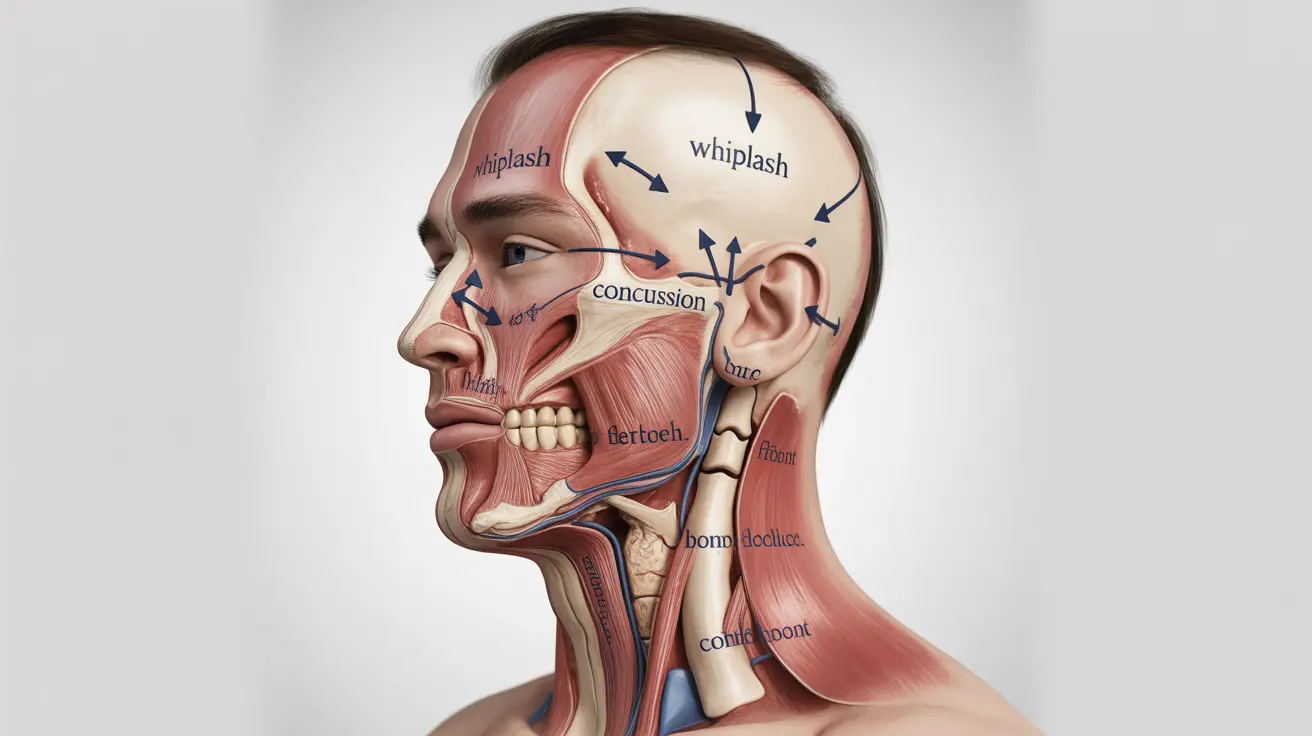Experiencing dizziness after a car accident can be both concerning and disorienting. This common post-accident symptom might appear immediately or develop days after the incident, potentially indicating various underlying conditions that require medical attention. Understanding the causes, recognizing warning signs, and knowing when to seek help are crucial for proper recovery.
While some cases of post-accident dizziness may resolve on their own, others could signal serious injuries requiring immediate medical intervention. This comprehensive guide will help you understand what causes this symptom and how to address it effectively.
Common Causes of Post-Accident Dizziness
Several factors can contribute to feeling dizzy after a car accident:
- Whiplash injury
- Concussion or mild traumatic brain injury
- Inner ear damage (vestibular system disruption)
- Cervical spine injuries
- Post-traumatic vertigo
- Anxiety and stress response
Each of these causes may require different approaches to treatment and have varying recovery timelines. Understanding the specific cause is essential for proper medical care.
Warning Signs and Red Flags
Certain symptoms accompanying dizziness warrant immediate medical attention:
- Severe headache or increasing head pain
- Nausea and vomiting
- Loss of consciousness
- Confusion or memory problems
- Blurred or double vision
- Difficulty walking or maintaining balance
- Neck pain or stiffness
Diagnosis and Medical Assessment
Healthcare providers typically perform several evaluations to determine the cause of post-accident dizziness:
- Physical examination
- Neurological assessment
- Balance testing
- Imaging studies (CT scan or MRI if necessary)
- Vestibular function tests
- Hearing and vision examinations
Treatment Approaches
Treatment options vary depending on the underlying cause and may include:
- Vestibular rehabilitation therapy
- Physical therapy for neck injuries
- Medication for symptom management
- Rest and gradual return to activities
- Balance exercises
- Stress management techniques
Your healthcare provider will develop a personalized treatment plan based on the specific cause and severity of your symptoms.
Recovery Timeline and Expectations
The duration of dizziness after a car accident can vary significantly among individuals. Some people may experience symptoms for a few days, while others might have persistent issues for weeks or months. Factors affecting recovery time include:
- Severity of the initial injury
- Type of treatment received
- Promptness of medical care
- Individual healing response
- Adherence to treatment plan
Frequently Asked Questions
What are the main causes of dizziness after a car accident?
The primary causes include whiplash, concussion, inner ear damage, cervical spine injuries, and post-traumatic vertigo. Stress and anxiety following the accident can also contribute to dizziness symptoms.
When should you seek medical help for dizziness following a car crash?
Seek immediate medical attention if you experience severe headaches, nausea and vomiting, loss of consciousness, confusion, vision problems, or if dizziness persists or worsens over time. It's always better to err on the side of caution and get evaluated after any car accident.
Can dizziness after a car accident be a sign of a serious brain or neck injury?
Yes, dizziness can indicate serious conditions such as traumatic brain injury, cervical spine damage, or inner ear trauma. This is why proper medical evaluation is essential, even if symptoms seem mild initially.
What are the treatment options for dizziness or vertigo caused by a car accident?
Treatment options include vestibular rehabilitation therapy, physical therapy, medications, rest, and specialized exercises. The specific treatment plan depends on the underlying cause of the dizziness and may involve multiple approaches.
How long does dizziness usually last after a car accident, and is it normal for symptoms to start days later?
Dizziness can last from a few days to several months, depending on the injury severity and type. It is normal for symptoms to appear days after the accident due to delayed onset of inflammation and stress responses. However, persistent or worsening symptoms should be evaluated by a healthcare provider.




